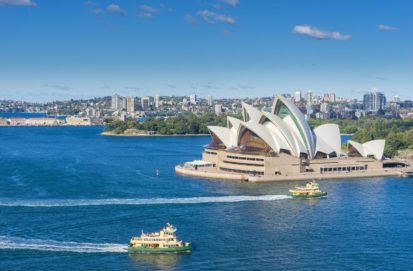Philippines: Personal appearance for non-immigrant visa applications
Impact 
The Philippine Economic Zone Authority (PEZA), announced a new system requiring non-immigrant visa applicants registered under the National Capital Region (NCR), to make a personal appearance at the office. This does not apply to dependent visa or visa extension applicants.
Please note that PEZA may require applicants to bring additional documents to their appointment.
This summary was prepared using information obtained from the Peregrine Immigration Management.
Disclaimer: this above information is provided for general information purposes only and should not be construed as legal advice. If you have any further inquiries regarding the applicability of this information, please contact Debbie Beynon, Regional Immigration Manager (APAC).
U.K.: Immigration system update
The U.K. Government commissioned the Migration Advisory Committee (MAC), an independent advisory body, to produce a report that considers how a points-based immigration system could be introduced in the U.K. to strengthen its labor market and review salary thresholds.
The report was published on Jan. 28, 2020, and its key recommendations are as follows:
Points-based immigration system:
- Maintaining the existing Tier 2 General visa route structure for applicants with a job offer.
- Applicants with no job offer looking to visit the U.K. will be awarded points under the system for specific characteristics and be entered into a monthly draw. Applicants with the highest score will be granted visiting status to the U.K.
Salary thresholds:
- Reduce the salary threshold for Tier 2 (General) visa category from £30,000 to £25,600 for “experienced workers,” and from £20,800 to £17,900 for “new entrants.”
- Maintain a national salary threshold. The report responded to calls to introduce regional salary variation. It concluded that it would bring complexity and may be difficult to enforce.
- Widening the definition of a “new entrant” – anyone under the age of 26 changing from a student visa or working toward a recognized professional qualification are sponsored for 3 years.
- Allowances, equity and employer pension should not be included to meet the required salary threshold.
- Full review of the current requirements for settlement under Tier 2 General workers and halt proposed increases to settlement salary thresholds. On April 6, 2020, the qualifying rate will increase to £36,200.
- Occupations on the Shortage Occupations List (SOL) should not have lower salary thresholds for entry. It also recommends a review to determine if the SOL is still needed after the new immigration system has been fully implemented.
Looking ahead
The U.K. Government is under no obligation to implement any of these recommendations, but the report could serve as indication on what the U.K. immigration system may look like in 2021.
It is important to note that the new system will apply to both non-EEA nationals at the end of the Brexit transition period. If recommendations to Tier 2 General are enforced, processing times will significantly reduce. The introduction of a points-based visa for those without a job offer could widen the pool of suitable candidates for employers.
This summary was prepared using information obtained from Gov.uk.
Disclaimer: The above information is provided for general information purposes only and should not be construed as legal advice. If you have any further inquiries regarding the applicability of this information, please contact Laxmi Vikraman, Regional Immigration Manager (EMEA).
U.S.: More travel restrictions
Impact
Six more countries have been added to the list of nations facing stringent travel restrictions: Burma, Eritrea, Kyrgyzstan, Myanmar, Nigeria, Sudan and Tanzania.
Immigrant visas, issued to those seeking to live in the United States, will be banned for Eritrea, Kyrgyzstan, Myanmar, Nigeria, Sudan and Tanzania.
Looking ahead
These restrictions apply to applicants via embassies or consulates abroad.
The Executive Order will take effect on Feb.22, 2020. Immigrants who obtain visas before then will still be able to travel to the U.S.; non-immigrants such as students and temporary employees will not be affected.
The Trump Administration has advised waivers will be issued to the those who may experience undue hardship if denied entry into the U.S.. Immigrants will also have the right to apply for waivers.
This summary was prepared using information obtained from the New York Times.
Disclaimer: The above information is provided for general information purposes only and should not be construed as legal advice. If you have any further inquiries regarding the applicability of this information, please contact Roberta Carnaccini, Global Operations Director, Immigration.
We track policy changes in over 120 countries. Find out how we can help you in this short video.




